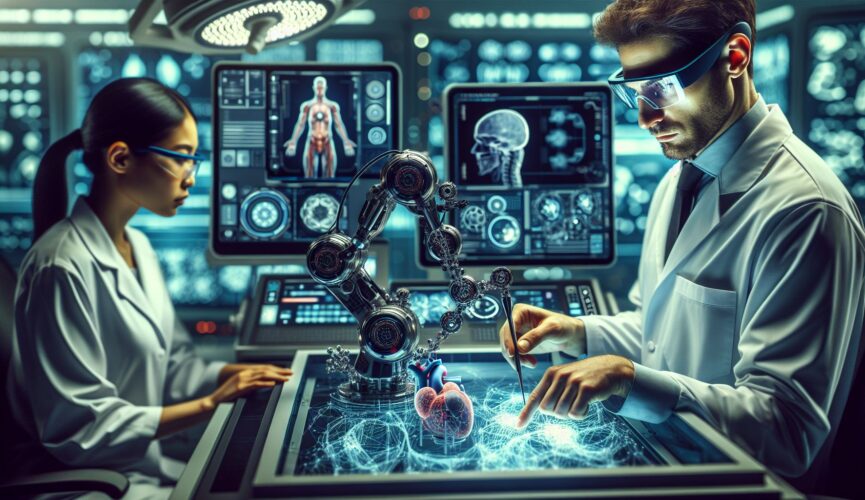In today’s rapidly advancing world, technology has permeated almost every facet of our lives. From the way we communicate to the way we work, technology has transformed various sectors, and healthcare is no exception. The intersection of technology and medicine has opened doors to countless possibilities, revolutionizing the field and enhancing patient care in ways previously unimaginable.
The Digital Revolution in Healthcare
One of the most significant impacts of technology on medicine is the digitization of health records and patient information. Gone are the days of sifting through paper files; electronic health records (EHRs) now enable healthcare professionals to access detailed patient information with just a few clicks. This not only streamlines administrative tasks but also facilitates coordinated care among different healthcare providers.
Similarly, advancements in medical imaging technology have significantly improved diagnosis and treatment. Sophisticated imaging techniques such as Magnetic Resonance Imaging (MRI) and Computed Tomography (CT) scans provide sharper and more detailed images, allowing medical professionals to identify conditions that may have previously gone unnoticed. Moreover, technologies like augmented reality (AR) and virtual reality (VR) are being utilized to assist surgeons during complex procedures, enhancing precision and reducing risks.
The Rise of Telemedicine
The advent of technology has also paved the way for telemedicine, bringing healthcare to patients’ fingertips. Telemedicine allows individuals to remotely connect with healthcare professionals through video calls or mobile apps, enabling medical consultations without the need for in-person visits. This has proven particularly beneficial for those residing in remote areas or individuals with limited mobility, providing them access to vital healthcare services without the need for travel.
Furthermore, wearable devices have gained popularity, bringing a new dimension to preventive care. Fitbits, smartwatches, and similar devices can monitor vital signs, track physical activity, and provide insights into overall well-being. This data empowers individuals to take a proactive approach to their health, aiding in the prevention and early detection of diseases.
Ethical Considerations and Privacy Concerns
While the advancements in technology and medicine have undoubtedly brought numerous benefits, they also raise ethical and privacy concerns. With the vast amounts of personal health data being stored and transmitted, maintaining patient privacy and data security becomes paramount. Striking the right balance between technological innovation and safeguarding patient information is a challenge that must be addressed.
Additionally, the reliance on technology may lead to a depersonalization of healthcare, with patients feeling distant from their healthcare providers due to virtual consultations and limited face-to-face interactions. Maintaining the human touch and empathy in healthcare delivery remains critical, even in this technologically driven era.
The Future of Health Tech
As technology continues to evolve at an exponential rate, the future of healthcare looks promising. Artificial Intelligence (AI) and machine learning algorithms hold immense potential in disease diagnosis and treatment planning. Predictive analytics can help healthcare professionals identify high-risk patients, enabling early intervention and personalized treatments. Furthermore, robotics and automation are transforming surgical procedures, reducing invasiveness and optimizing recovery times.
In conclusion, the intersection of technology and medicine has rewritten the rules of healthcare. From digitizing health records to enabling telemedicine and wearable devices, technology has improved patient care, diagnosis, and access to healthcare services. However, striking a balance between technological innovation and personalized care, and addressing ethical challenges remains crucial to fully harness the power of technology in revolutionizing medicine. As we embrace these advancements, let us not forget the human element that lies at the heart of medicine – the care and empathy for patients that can never be replaced by technology alone.
